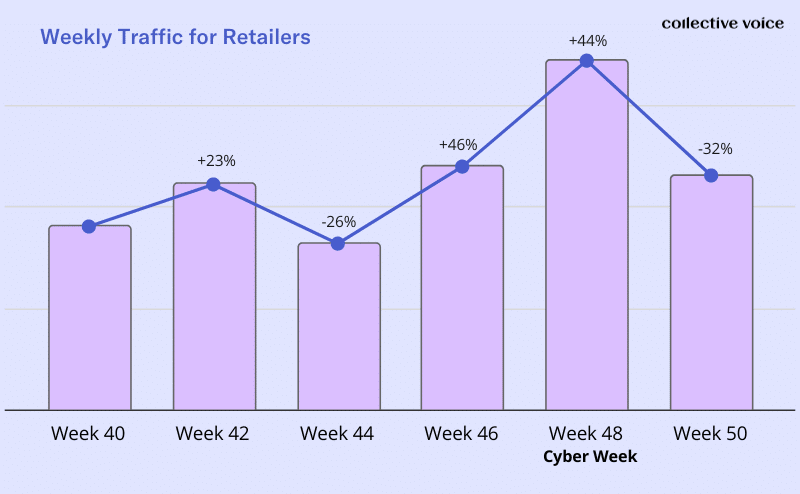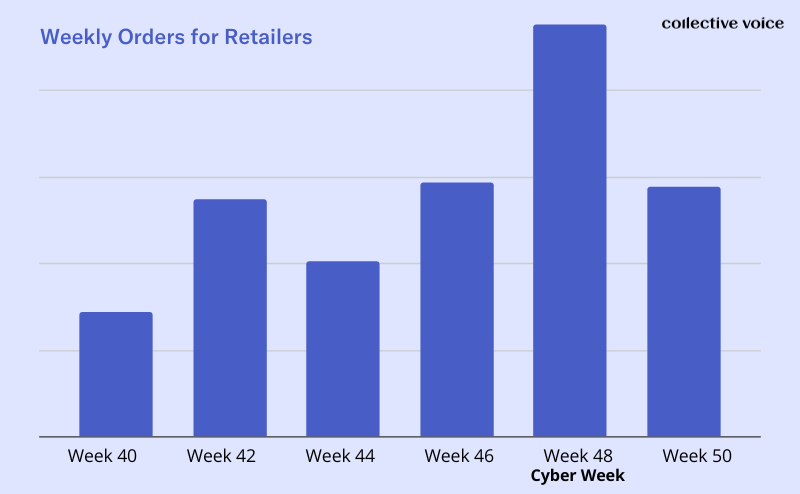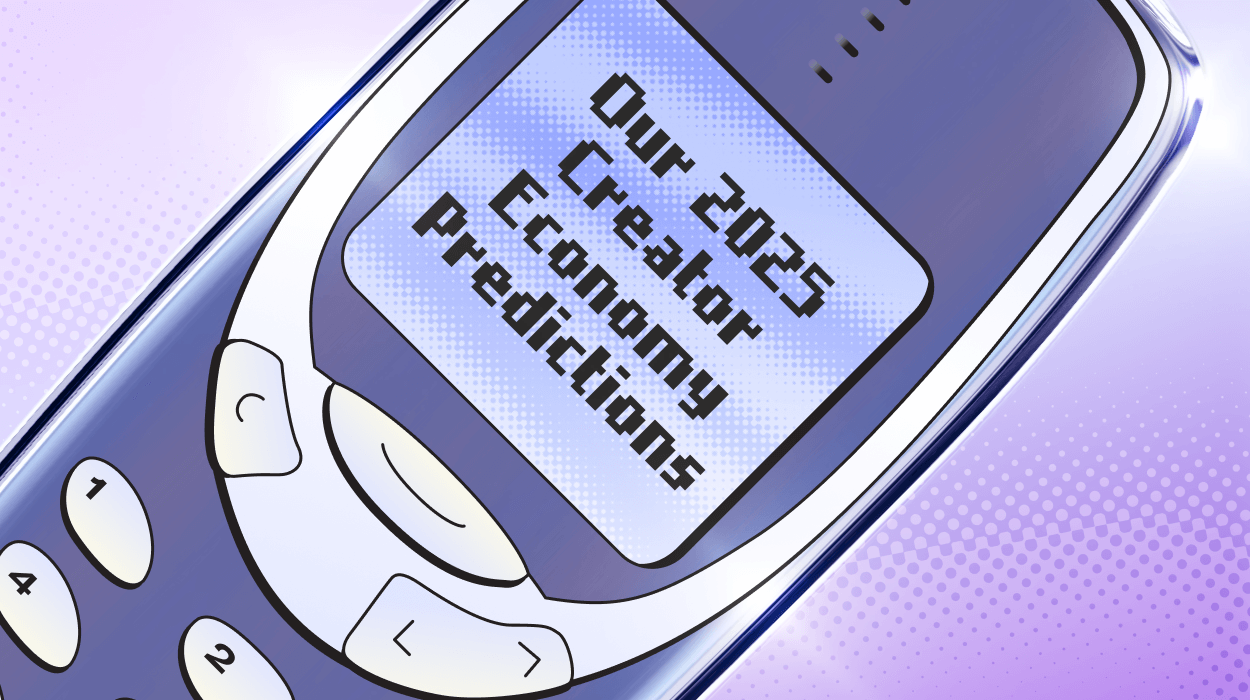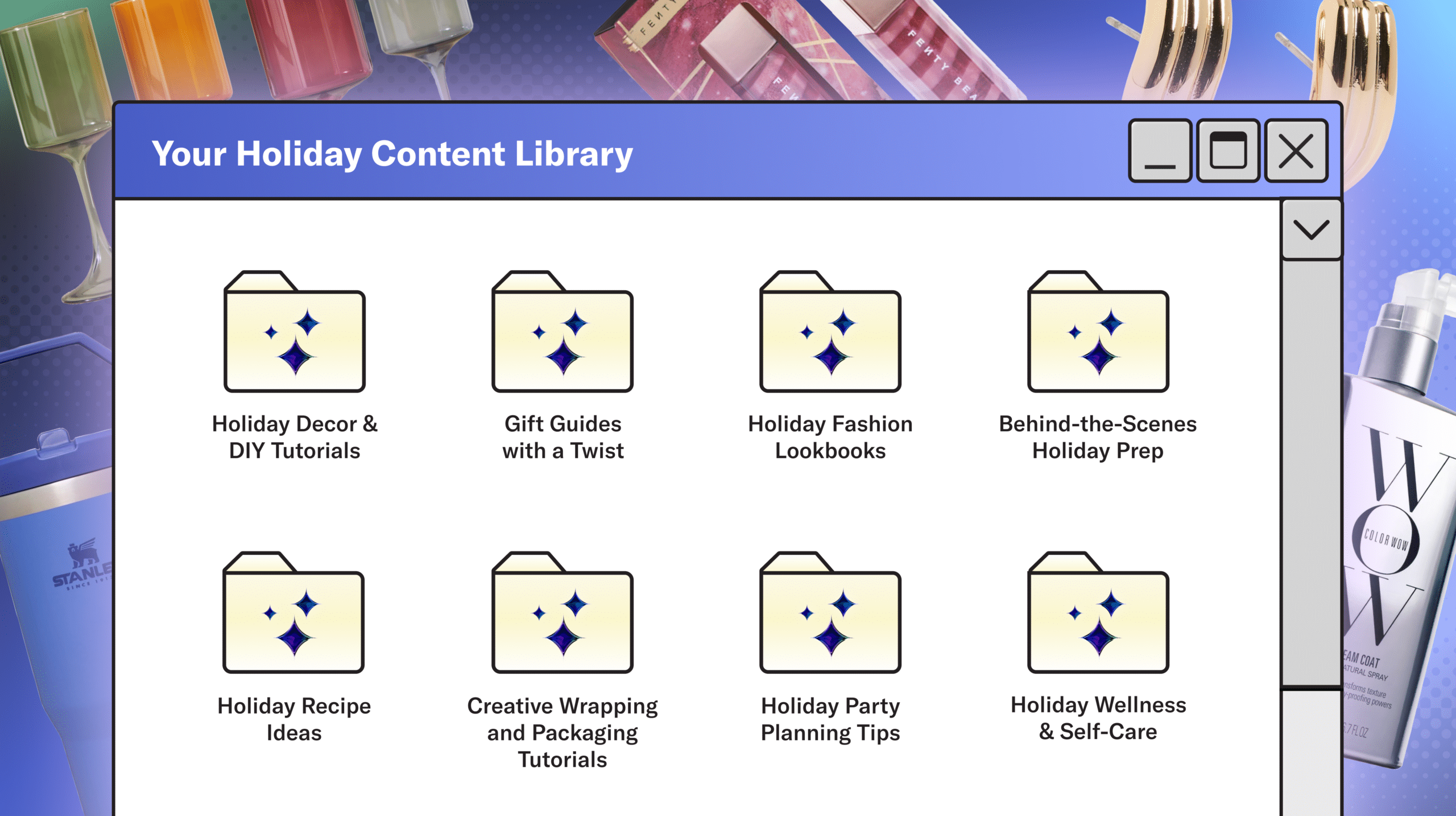3 Reasons To Start Planning Your Cyber Campaigns Now

The holiday season is one of the busiest times of year for Creators and brands alike. And each year, Cyber Week kicks off this season with a bang, presenting a lucrative opportunity to promote products, showcase great deals, and drive major sales.
Though Cyber Week doesn’t begin until the end of November, Marketers are planning effective Creator campaigns early to get ahead of the competition
If you haven’t started planning your Cyber campaign, here are three reasons why you should get started now.
1. Creators are trusted by audiences, and they’re planning their content early.
Leveraging the power of Creators and their vast influence is a crucial marketing strategy for holiday campaigns in the age of social media, especially if you’re hoping to reach young audiences. In fact, half of Gen Z and Millennials report that they discover new products and make purchases from Creators.
When it comes to holiday content, Creators are incredibly savvy and strategic; as many as 96% of Creators start their holiday content planning before November! Kicking off the campaign process early gives Creators plenty of lead time to form their strategies and create high quality, authentic content.

2. Shopping interest starts increasing in mid-October.
Don’t wait until Cyber Week to launch your campaign! The earlier you start marketing your products and getting your messaging out there, the better chance you have at capturing consumer interest at the right time.
Consumers start doing their holiday planning in October, as evidenced by average weekly traffic increases of 45% from Creators’ affiliate links starting mid-October and extending through December.

3. Holiday shopping starts before Thanksgiving.
Not only are consumers preparing for the holidays earlier, they’re also shopping earlier. As many as 57% of consumers start their holiday shopping before Thanksgiving, and Collective Voice retailers begin to see a 74% increase in overall orders starting in mid-October.
This early approach also helps offset longer conversion times. After three years of uncertainty, shoppers have become more intentional with purchasing, resulting in longer lead times between interest and purchase.





